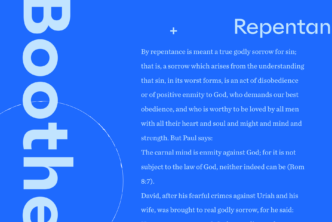Last year Lexham Press released a book of daily devotions from the young Abraham Kuyper, Honey from the Rock.
Though most know Kuyper now for his Christian cultural engagement, in his time he was better known for his personal meditations.
George Harinck, professor of history at the Free University of Amsterdam and Theological University of Kampen, writes in his endorsement of the book:
Kuyper is best known for his Christian vision of cultural engagement. This is his legacy, but in Kuyper’s times he was beloved among the Reformed people in the first place for his weekly meditations. In these reflections on a Bible verse, Kuyper opened his heart to his readers by meditating about the personal relation with God in a creative, personal, and inspiring way. Of all Kuyper’s publications, his volumes with meditations sold best. His meditations seem largely to have been forgotten, and therefore it is more than apt that James de Jong translated one of the most famous volumes and presents the religious Kuyper to a new audience. If you want to learn to know Kuyper, his meditations are the best entree to his biography and work. (Emphasis mine)
To help you enter in as Harinck suggests, here is the introduction to Honey from the Rock, which offers a brief portrait of Kuyper and how his spiritual and theological commitments are represented in this collection.
***
One cannot understand Abraham Kuyper apart from his meditations. The more one delves into them, the better one comes to know Abraham Kuyper.
Kuyper is famous for his initiatives in Christian journalism. He began a Christian daily newspaper in the early 1870s. He founded and edited an eight-page religious weekly. He was a rigorous advocate for government funding for Christian schools. His vision of a Christian scientific mind compelled him to establish a Christian university. Politics and justice were such important arenas needing faith-based guidance that he exchanged his pastoral office for a political one.
Urbanization, industrialization, and colonialism all presented new challenges in a rapidly changing world order that begged for Christlike solutions. So he galvanized the Anti-Revolutionary Party into a passionately dedicated political movement. As a theological professor, he produced major theological works, many now being translated into English for the first time. Abraham Kuyper’s amazing stamina and productivity, seen in these initiatives, were nurtured by the spirituality so transparent in his meditations. Kuyper did not wear his heart on his sleeve, but his meditations are the lens through which we are privileged to look into his soul.
The title Honey from the Rock is based on Psalm 81:16: “But you will be fed with the finest of wheat. I will satisfy you with honey from the rock.” While Kuyper never did write a meditation on this verse, it perfectly captures how he felt about meditating on Scripture. Communion with the Lord is sweet. It feeds the deepest hungers of the human spirit.
Spiritual nourishment comes from all parts of the Bible. This collection draws heavily from the Gospels, Psalms, New Testament Letters, and Old Testament Latter Prophets. But it also includes meditations based on passages from the Pentateuch, Former Prophets, and wisdom literature.
The themes and topics in this collection are rather wide ranging. Emphasis on personal assurance based on God’s covenant promises is prominent. So is God’s patience and long-suffering with his often-indifferent people. The power and glory of the Christian life are frequent motifs. Endurance and perseverance in the face of hardship appear consistently. The responsibilities of Christian parenting are regularly treated, as are the sad consequences of neglecting them. Formal, empty, powerless religious practice is often denounced, as are hypocrisy and religious practice for social recognition.
The meditations are equally emphatic against cultivating subjective religious experience as the basis for assurance; Kuyper unmasks the spiritual peril of such piety. He is graphic and candid about the power of sin in the lives of Christians as well as among unbelievers. For him, the Devil, sin, and hell are looming realities regularly referenced in his material. He emphasized the ministering power of angels in Christian experience. He stressed the urgency of vibrant Christian community, the Sabbath as a time of sacred refuge and renewal, and the centrality of worship and preaching and sacraments in the ministration of grace. Worldly diversion and the pursuit of material gain and human recognition elicit his warnings.
Kuyper does employ theological terms in these meditations: calling, election, adoption, regeneration, sanctification, atonement, and others. But he does so not to teach doctrine; he assumes that readers understand this vocabulary. He uses these terms only to stress the riches of fellowship with God. Kuyper’s handling of his chosen themes and topics, and his occasional use of theological terms, occur in a surprisingly fresh, creative style. His meditations are spiritually gripping and memorable.
***
Learn more about Honey from the Rock (Lexham Press, 2016). You may also be interested in another popular collection of his meditations, To Be Near Unto God.





